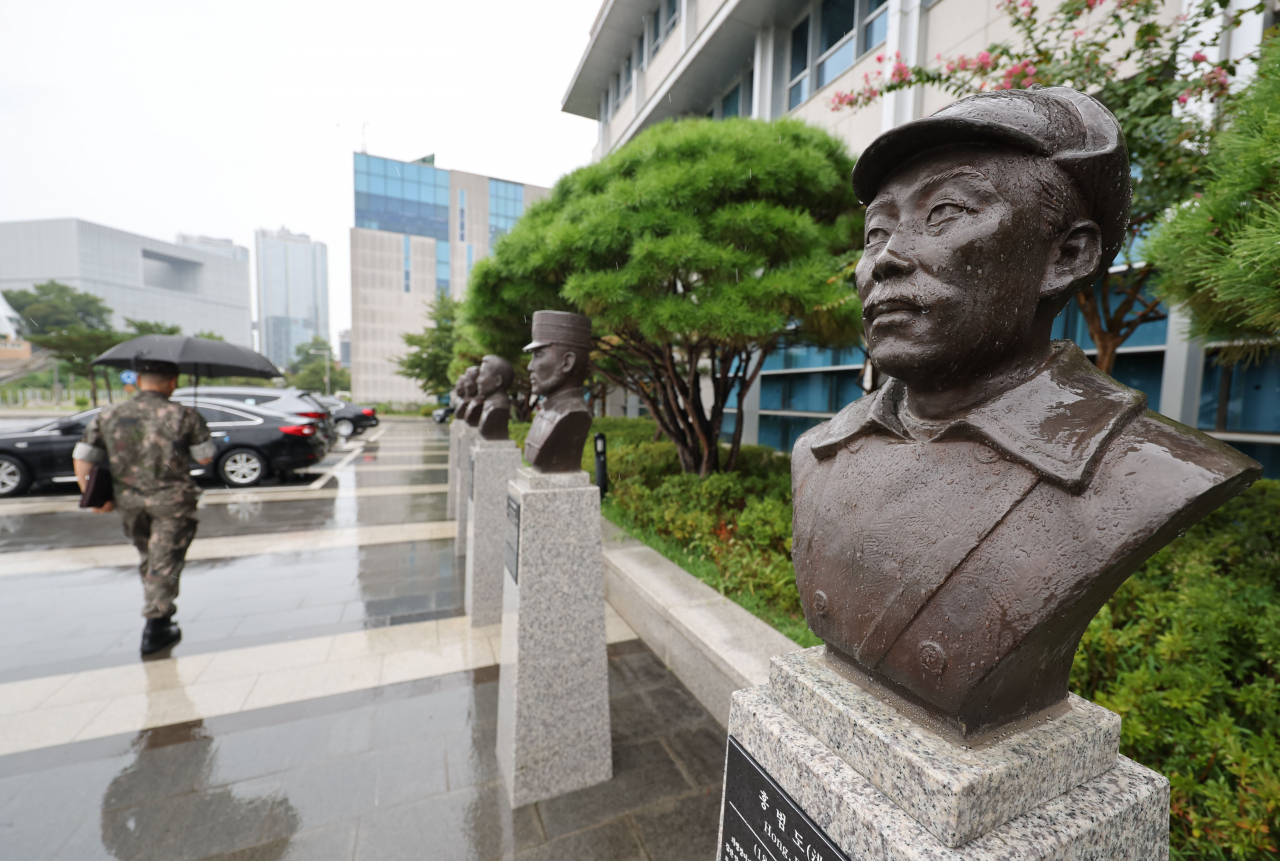 |
A bust of Gen. Hong Beom-do at the Ministry of Defense in Yongsan-gu, Seoul (Yonhap) |
The descendants of Korean freedom fighters said they will return the honorary degrees from the Korea Military Academy on Friday, in protest of the KMA's recent decision to relocate the statues of independence fighters.
Jeong Cheol-seung, the grandson of freedom fighter Yun Gi-seop, told local media that he and descendants of other independence fighters Yi Sang-ryong and Ji Cheong-cheon would visit the academy on Friday afternoon and return the degree, which they received in behalf of their ancestors in 2018.
"Returning the degree is a way of formally pronouncing that the KMA now has no business in upholding the noble cause that the freedom fighters fought for," Jeong said.
The KMA decided last month to relocate the bust of Gen. Hong Beom-do, a prominent figure in Korea's independence movement against Japan's colonization, from its premises. The statues of other independence fighters Ji Cheong-cheon, Lee Beom-seok, Kim Jwa-jin, and Lee Hoe-yeong, which stand in front of the school's main building, will be moved to other locations within the campus.
A few days later, the Ministry of Defense announced that it is removing Hong’s statue from the front of its main building.
The controversy centers on activists' alleged associations with the communist faction, particularly Hong, who was associated with the Soviet Communist Party during his time in the Soviet Union. The Defense Ministry said it would be more appropriate to situate Hong's statue within the Independence Hall of Korea in South Chungcheong Province, saying that his contribution to the country's independence should be respected.
Hong is best known for his leadership in the Battle of Bong-o-dong in 1920, a key moment in Korea's Independence Army's battles against the Japanese forces in northeastern China. He joined the Communist Party of the Soviet Union, which was part of allied powers during the World War II, but has no known association with the North Korea's communist regime as Hong died in 1943, before Korea was liberated.
The KMA did not specify why it is relocating the busts of the other four, who have no known association with the communist party; Kim Jwa-jin in particular was hostile toward the communists and was assassinated by one.
The academy in the past awarded honorary degrees to Hong, Kim and Ji, and Lee Hoe-yeong was one of the founders of the Shin Hung Military Academy, the forerunner of the KMA.
The decision to relocate the statutes has sparked debate across the country, with surveys suggesting that the majority of the population are against it.
Local pollsters Embrain Public, K-Stat Research, Korea Research and Hankook Research conducted a joint survey on Sept. 11-13 on 1,002 adults across the country on relocating Hong’s statue. Of the respondents, 58 percent said they were against it, 26 percent were in support, while the rest said they were unsure.







![[Today’s K-pop] Blackpink’s Jennie, Lisa invited to Coachella as solo acts](http://res.heraldm.com/phpwas/restmb_idxmake.php?idx=644&simg=/content/image/2024/11/21/20241121050099_0.jpg)